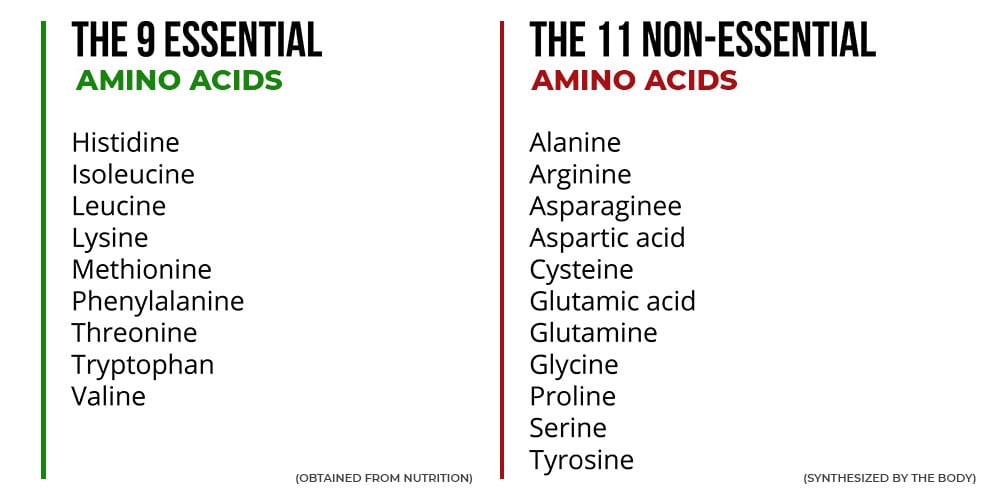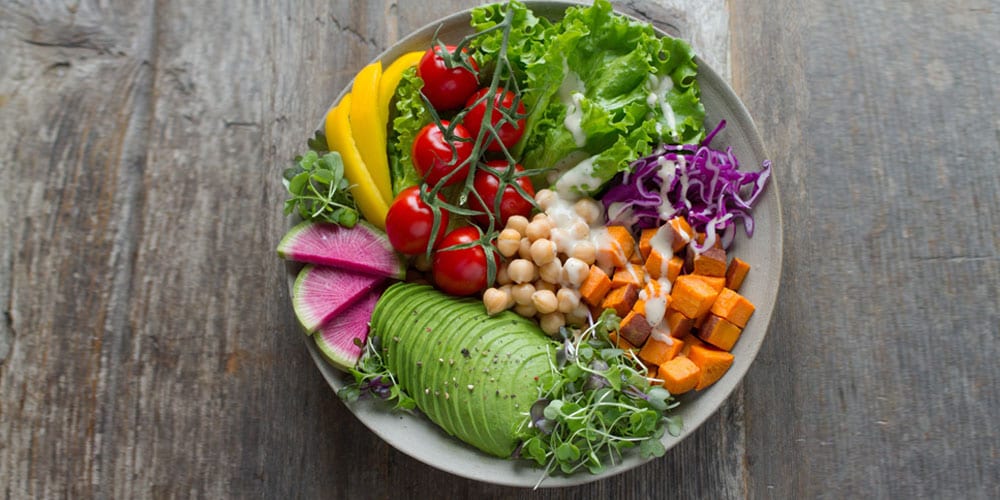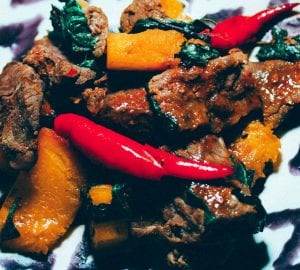With a vegan bodybuilders lifestyle, it is necessary to constantly be on the lookout for the best plant-based substitutes for your nutritional intake. Luckily, there are many that are not only worthy competitors for animal-based nutrition but even surpass it on some components of comparison. If you’re still adjusting to a newly adopted vegan bodybuilders lifestyle or are thinking of new substitutes to add to your diet, then this is the place for you.
Bodybuilding isn’t all about the exercises you do. You should also pay attention to eating the right foods so that you can build muscle. To build muscles, you need to eat a lot of high protein plant based foods, which are good for your body.
If you frequently workout and are worried about getting your fill of your nutritional RDIs in terms of protein, consider looking over this guide on hemp protein vs. pea protein. Both of them are worthy contenders and deserve to be added to your diet, so compare the pros and cons for your lifestyle and bodily needs exclusively!
What Is Hemp Protein?
Hemp protein is a pretty common source of protein found in hemp seeds or cannabis plants. However, they’re devoid of the component of cannabis that induces the feeling of being “high.” Marijuana also falls under the category of being a cannabis plant, yet it contains THC or tetrahydrocannabinol – which is the component that induces all symptoms of being high.
Hemp protein, on the other hand, is one of the most common plant-based sources of protein – it’s extracted from hemp seeds and can be consumed in the form of protein powders as well.
What Is Pea Protein?
Pea protein is derived from, as the name suggests, peas. But more specifically, it is extracted from either golden or green split peas. Pea protein can be consumed in higher or lower concentrations, depending mainly on the composition process it goes through.
There are numerous benefits to pea proteins and are also popular among those who actively pursue the vegan bodybuilders lifestyle. Additionally, owing to it being a legume, pea protein has multiple overt advantages over other sources of plant-based proteins. It can be consumed as a dietary supplement in the form of protein powder, or it can also be a substitute for other non-vegan protein sources.
Understanding Essential And Non-Essential Amino Acids

Let’s go back to some bodily biology. The difference between essential and non-essential amino acids is quite simple yet is a very neglected sector involved in nutrition. Keep in mind here that our body has twenty amino acids in total.
To put it simply, essential amino acids are those that your body needs. Your own body cannot produce these amino acids, so it needs supplements from elsewhere – namely, through the food you consume. Concerning the 20 amino acids, the essential amino acids that your body needs are 9. Here, you will explore two protein sources that have all nine essential amino acids for your body.
Similarly, nonessential amino acids refer to the 11 amino acids that your body is already responsible for synthesizing, so you do not have to supplement them with any of the food you consume – regardless, your body will just be naturally producing these amino acids for you.
What Is A ‘Complete Source of Protein’?

As you now know the difference between essential and non-essential amino acids, it’s best to keep in mind that you need to supplement your diet with the essential amino acids mentioned earlier. If not, then you might have several deficiencies that can lead to side effects of their own.
To insure yourself against this happening, you can consider foods that are labeled “complete sources of protein.” To put it quite simply, this means that these foods contain all the nine amino acids that your body deems essential and cannot produce on its own. These complete sources of protein are usually superior since they fulfill all your requirements in one.
Hemp Vs. Pea Protein | Which Comes Out To Be Better?
From the brief overview provided of hemp and pea protein, you may have seen that they’re both considered to be excellent sources of protein in a vegan bodybuilders diet. However, it is also important to consider which one is the better source of protein for your body.
As you might know already, no two proteins are the same – both of them have their benefits and defects as any other protein sources, yet it’s essential to consider which one you should pick, keeping in mind your specific bodily needs. Of course, since both of them are complete protein sources, there are other areas of difference that you may want to consider. Keep reading to find out which one you should incorporate!
1. Protein Content
Hemp Protein
Hemp is, hands-down, a powerhouse of all nutrients – and especially proteins. Many athletes and bodybuilders prefer hemp protein because of its unprocessed nature – and depending on the brand, you can get different amounts of protein content and macronutrients. Mostly, however, a 30-gram single scoop serving can bring you 15g of protein and more fiber than most plant-based sources of protein.
You can fulfill around 30% – 40% of your daily fiber intake, depending on the brand of hemp protein you’re choosing – and while the fats and carbohydrates content is kept at a minimum, they’re still somewhat high as compared to other plant-based sources of protein.
Pea Protein
Pea contains a multitude of nutrients, even in a single serving. Since every serving of pea protein is around 20-25g, you only have to add a minimal amount of the same in your diet to get the benefit of all the nutrients.
Peas infamously contain more protein than other plant-based sources of protein – rivaling that of soy protein. In one serving, you can expect to find around 20g of protein. The fats and carbohydrates are minimal as well, which also makes it a great lean source of plant-based protein. However, it falls behind in the fiber count in comparison to hemp protein. If your goals hover around bodybuilding while you’ve committed to a plant-based diet, it becomes crucial to carefully tailor a vegan bodybuilding diet. Pea protein supplements being a great lean protein source for vegan bodybuilders , can be a convenient addition in a plant-based athlete’s diet.
2. Amino Acid Profile
Hemp Protein
As you might have already noticed before, hemp protein is indeed one that contains all essential amino acids within itself. However, you might also have noticed that not all sources of proteins have the same amount of amino acids within themselves. Hemp protein is an excellent example of this fact. While it is higher in other amino acids, it is significantly lower in lysine, leucine, isoleucine, and valine.
The last three are part of the BCAA – the branched-chain amino acids, that is. Being lower in these essential amino acids means that it might be the less ideal option for muscle movement and muscle repair, so keep that in mind if that’s something you need to be crucial in your diet.
The BCAAs, especially – leucine, isoleucine, and valine – are responsible for reducing muscle damage, and hemp tends to fall on the shorter end of the stick here. However, if you’re asking, “is hemp protein a complete protein” – it is indeed a complete protein since it has all nine essential amino acids.
Pea Protein
Pea protein, similar to hemp protein, is also replete with all essential amino acids. With a slight advantage, pea protein is also abundant in the essential amino acids that hemp protein finds itself short of. This, of course, means the BCAAs again – leucine, isoleucine, and valine.
Pea protein finds itself to have all of these amino acids in an optimal quantity, even when compared to non-plant-based sources of protein such as whey. In terms of reducing muscle damage and repairing your muscle tissues post-workout, pea protein might prove to be the better alternative. However, pea protein has lower quantities of methionine, which is an amino acid that promotes optimal metabolism and digestion.
So while it may be abundant in amino acids such as leucine, isoleucine, valine, and arginine, it has its shortcomings as well. The answer to “is pea protein a complete protein” is also considered a complete protein source because it possesses all nine essential amino acids.
3. Digestibility
Hemp Protein
While all plant-based protein sources are considered more difficult to digest than animal-based sources of protein, hemp seems to be an exception. Many experts advocate the digestibility of hemp protein as being almost the same as animal-based protein sources such as whey.
The ease in digestion can be attributed to albumin and edestin, which are proteins responsible for aiding the digestion process. Additionally, processing hemp protein with heat can lead to loss of its digestive properties, so check your product before purchase to ensure that it’s not heat-processed!
Pea Protein
Like hemp protein, pea protein is quite easily digestible compared to other sources of plant-based protein – even a fraction more than hemp protein, in fact. Most pea protein brands are said to be fully digestible and can thus be incorporated into your diet with no issues.
If you’re one of the many vegan bodybuilders with Irritable Bowel Syndrome or IBS, then the fibers present in pea proteins can affect your digestion. However, if not, you can continue to include pea protein as a protein powder or even a dietary substitute.
4. Minerals And Antioxidants
Hemp Protein
Minerals and antioxidants are responsible for preventing heart conditions and diabetes, so it is absolutely imperative to include the same in your diet.
Luckily, hemp protein is known for its high sources of minerals and antioxidants – studies have shown that you can get around half of your recommended daily intake for iron from a single serving of hemp protein. Similarly, it is replete with other minerals and antioxidants such as magnesium, potassium, and thiamine as well.
Pea Protein
Similar to hemp, pea protein can also be extremely beneficial if you’re struggling to include those minerals and antioxidants in your diet. Its iron content alone can fulfill almost all of a vegan bodybuilders recommended daily intake, depending on the age group and gender you fall under.
The iron present in pea protein can be a bit hard to absorb, so it is always recommended to combine your pea protein intake with citrusy foods containing Vitamin C since it aids in absorbing iron like nothing else.
5. Taste & Texture
Hemp Protein
The texture and taste of proteins are always major contributors to whether or not you’re going to take them up in your diet. Most people are daunted by the thought of consuming raw protein powder, as it is usually … not the best-tasting, to say the least. With a texture that resembles chalk, hemp protein can actually be quite grainy and put people off at first. The top notes of taste in hemp protein often come down to it being earthy and resembling seeds.
However, if the taste does not agree with you, you can always use hemp protein as ingredients for other delicious and healthy recipes. You can also blend them in with fruits to make a smoothie that you’ll enjoy. The most important part of hemp protein is that it helps you feel sated and quells your appetite, which is an advantage for those trying to lose weight.
Pea Protein
As compared to animal-based sources of protein, pea often falls behind in the taste and texture department. Many vegan bodybuilders reportedly feel like pea protein tastes quite weak in comparison to whey. Pea protein, similar to hemp protein, is defined by a chalky taste that is quite earthy.
One advantage of pea protein over hemp protein is that the former blends with almost anything owing to its smooth texture – so if you feel like consuming pea protein as a powder is not for you, you can attempt to incorporate it in various ways in your diet.
6. Potential Side Effects
Hemp Protein
For individuals who have pre-existing digestive problems, hemp protein may only serve to exacerbate them. Since hemp protein contains a heavy amount of fibers, they are not recommended for those whose bowel movements are irregular.
It is also not recommended to consume hemp protein in large amounts all at once since the fiber may, once again, mess with your metabolism and digestion. And, of course, those who have allergies to hemp should not consume hemp protein in any amount whatsoever.
Pea Protein
While there are minimal side effects as far as pea protein consumption is concerned, there are a few warnings for people who are advised against the consumption of sodium for any reason – be it kidney conditions, precautions against heart diseases, or even high blood pressures.
Pea protein contains large amounts of sodium, so make sure to check with your dietician before consumption. Other than this, since pea protein has a minimal repository of fiber, it does not hamper digestion in any way.
Verdict | Hemp Protein Vs. Pea Protein, Which Wins?
As with most comparisons, there is no distinct winner for the discussion of hemp vs. pea protein. With minimal intakes, both of these proteins prove to be worthy additions to your vegan bodybuilders lifestyle. Since both of them are complete proteins, you do not have to worry about missing out on essential amino acids at any point in your diet.
However, solely as a workout supplement, pea protein can be the better option – replete with the BCAAs, pea protein can be a godsend for muscle gain and repair after hours spent at the gym. Since pea protein is easier to digest as well, you will no longer have to feel bloated after introducing it into your diet.
With the satiety level of hemp protein, however, you can pursue weight loss programs with ease – so if you’re still unsure, juggle between them both for a while to see what fits you the best!








